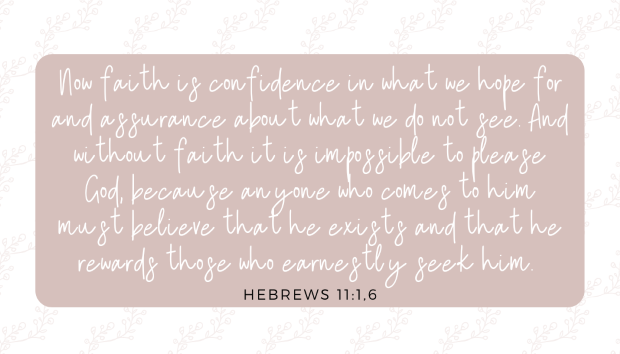Life Hacks Straight Out of the Bible
Life can be full of challenges. Fortunately, the Bible is a powerful guide that provides wisdom for confronting everyday stressors. Whether you’re facing stress, conflict, or temptation, Scripture can assist us through life’s ups and downs, helping us tackle daily challenges with faith, grace, and confidence.
Engaging with Difficult People
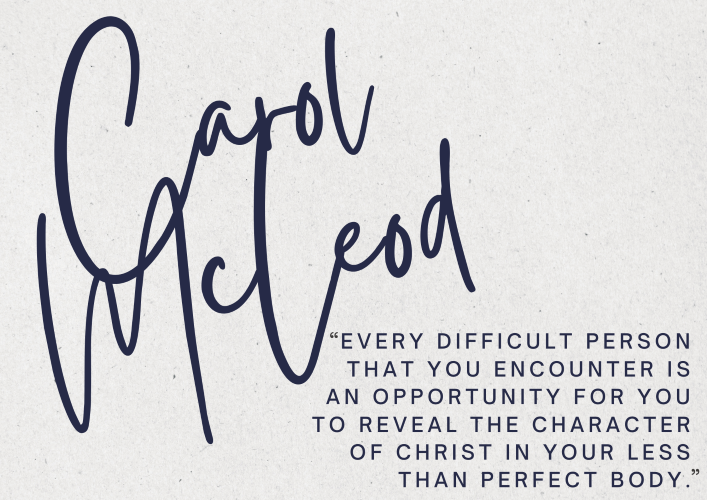
We’ve all encountered difficult people—an unreasonable boss, an inflexible family member, or a heedless friend. David’s relationship with King Saul is one of the Bible’s most well-known examples of dealing with a difficult person. Despite David’s loyalty and service to the king, Saul’s paranoia and jealousy turned him into a relentless adversary, and he even attempted to take David’s life multiple times. Yet, David refused to seek revenge or respond with anger. Instead, he showed remarkable restraint, choosing to trust God’s timing rather than force a resolution, even sparing Saul’s life twice when he had the chance to end their conflict.

David’s response emphasizes that, while we can’t control how others act, we can control our reactions. We can handle challenging people without letting conflict consume us by staying patient, seeking God’s wisdom, and maintaining a spirit of grace.
Managing Finances

In the Parable of the Talents, Jesus tells the story of a master who entrusts various amounts of money to his servants before leaving on a journey. Two of the servants invest wisely and double their amounts, while the third buries his in fear of losing it. The master rewards the first two for their stewardship and chastises the third for his lack of initiative and the waste of an opportunity.

This parable teaches us that responsible management of our resources is not just about avoiding waste, but also about using what we have to its fullest potential. Whether it’s our finances, time, or abilities— planning ahead, investing, and trusting God empowers us to avoid the pitfalls of fear and inaction, making the most of what we’ve been given.
Finding Peace Among Stress
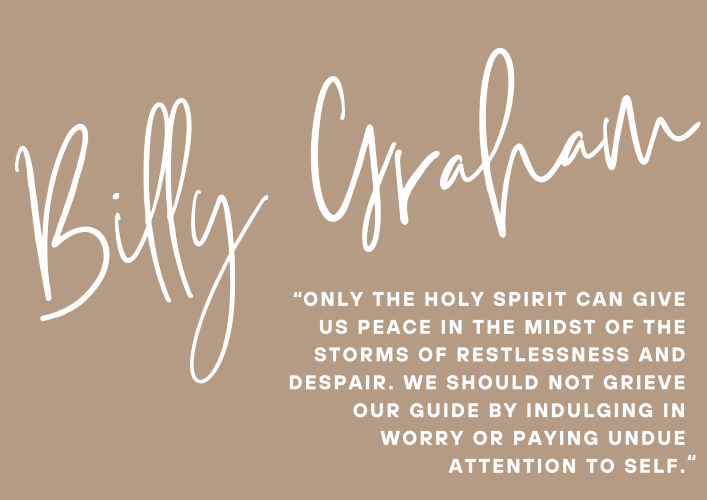
In the story of Jesus calming the storm, the disciples find themselves in a boat as a fierce storm arises, threatening to capsize them. While the disciples panic, Jesus remains in a peaceful sleep. Fearful for their lives, they wake Him in desperation. With a simple command, the winds and waves are still, leaving the disciples in awe of His power.
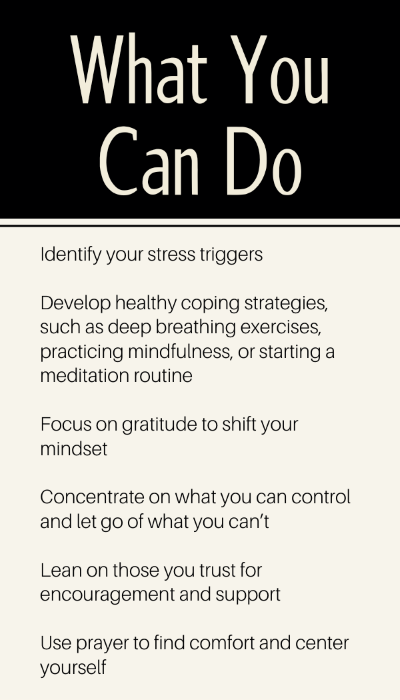
This is a powerful reminder that even when life feels overwhelmingly turbulent, we can find peace by trusting in God’s presence and power. Incorporating stress-relief techniques and seeking God through prayer, enables us to navigate our stresses with a sense of calm and confidence, knowing that He is in control.
Maintaining Relationships
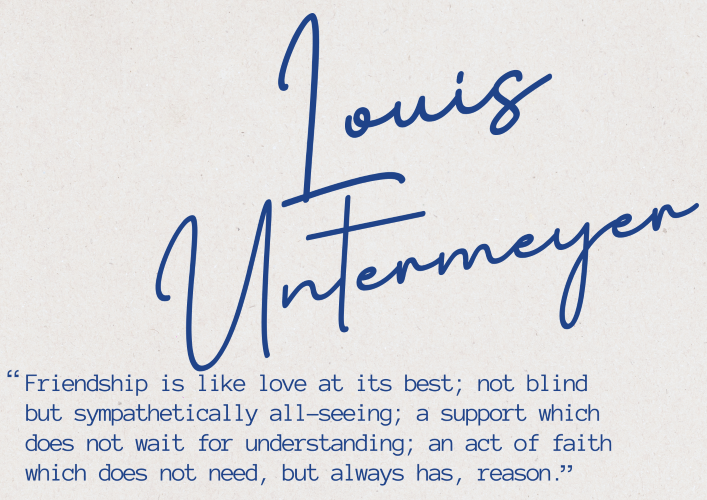
After the loss of her husband and sons, Naomi urges her daughters-in-law to return to their own families. However, Ruth chooses to stay by Naomi’s side, declaring, “Where you go, I will go.” Ruth’s loyalty leads to a deep bond between the two, and eventually, they find a new beginning through their faithfulness to one another.

Ruth’s story teaches us that strong relationships are built on love, loyalty, and selflessness. By showing up for the people in our lives and offering consistent support, we can strengthen our bonds and create lasting, meaningful connections, just as Ruth did with Naomi.
Negating Temptations
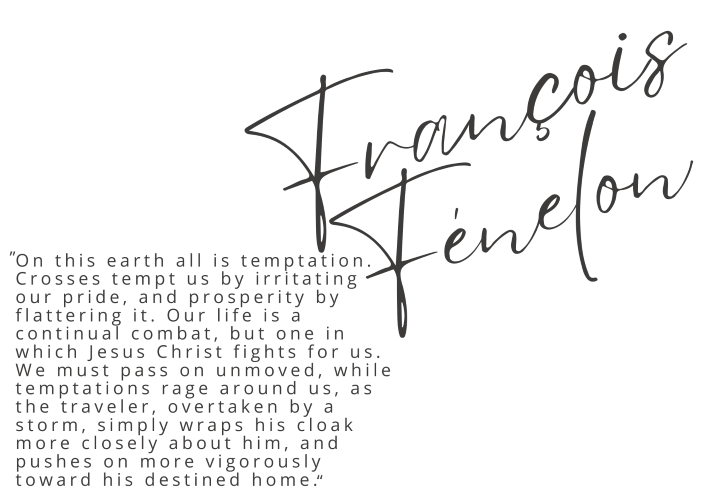
After fasting for 40 days, Jesus is approached by Satan, who tries to lure Him with food, power, and safety. Despite His hunger and isolation, Jesus resisted Satan’s scheme, responding by quoting scripture and standing firm in His faith.
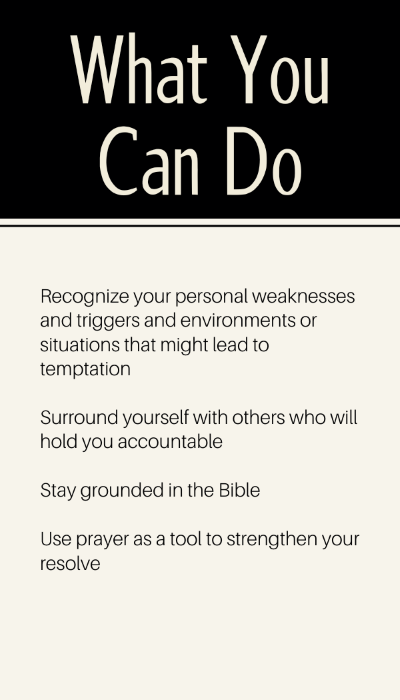
Jesus’ triumph over temptation reminds us that, though we all face trials, we too can overcome temptation by vigilantly remaining close to God through prayer and scripture. Being proactive and mindful of potential hurdles we can resist temptations and stay focused on living faithfully.
When in Doubt
As we’ve seen in these stories, the Bible provides a wealth of practical guidance for everyday situations, proving that God’s counsel is always available if we seek it. So, no matter what life throws your way, remember to look to the Bible for insight, comfort, and direction— it’s a guide that never fails.
-Torrance Community Church of Christ






